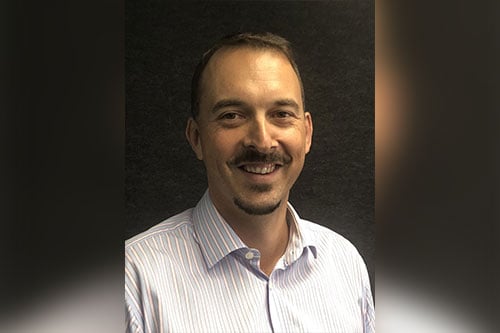

The COVID-19 pandemic has created a global economic crisis, forcing the temporary shut-down of many industries, including retail and hospitality, as well as forcing millions on to government welfare payments.
But another challenge arising from the COVID-19 economic wrecking ball that has seen little attention is the issue of vacant properties – an increasing issue with several commercial properties being forced to shut down temporarily.
“We’re getting the high demand as we normally would for this time of year but we’re also finding there’s a lot more demand for properties that are becoming temporarily vacant due to the pandemic,” said Adam Dalton (pictured), managing director of Mainstay Underwriting.
“Since the coronavirus has commenced, we have found there have been a number of brokers now approaching us for short-term cover for their clients’ shops, cafes and offices that are now vacant where the local insurer can’t assist.
“We get a lot of brokers that keep saying to us ‘we were not aware of your product but we’re really happy with the cover. We only wish we’d known about you weeks or months ago’ or ‘there’s no-one else offering the unoccupied property cover you are.’ The feedback is always a positive experience,” Dalton added.
The unoccupied property cover that the business provides is particularly useful during this time, says Dalton, because of the flexible contracts it offers.
“An additional benefit of our cover is that we offer both a three-, six- and 12-month coverage,” he said. “So, we’re finding quite a number of people looking for a three or a six-month cover, that will hopefully carry them through any short-term crises, such as we’re seeing now.
“It’s really putting in place something that’s not offered by the local market. If you have an asset that you can’t afford to self-insure, should it burn down or be the target of criminals and the local insurers can’t help you, then [our] policy that you can bank on will provide you and your client comfort during this trying time.”
Dalton also says that the cover comes with an option to be extended, so clients can have even more control over what they pay for.
“For Unoccupied Property, we cover both the property and liability, with different levels of cover. We have the standard cover - what we call FLEA Cover – that being fire, lightning, earthquake and aerial,” he said.
“Or we offer an extended cover which includes a lot of the wider perils that you would normally expect to see, such as malicious damage, storm damage, etc. Our appetite includes industrial, commercial and some residential.”
However, despite the many new and complex challenges the novel coronavirus has brought on the industry, Dalton admits he hasn’t had to make any specific new changes to the unoccupied property cover. Instead, he says the product naturally works well without needing any tweaking.
“While we haven’t made any specific changes, the product works really well for this current crisis,” Dalton claimed.
“This is mainly based on the fact that people can take out a three- or a six-month cover and a lot of the market is finding that quite useful. Where a premises might become unoccupied during this pandemic they can actually say ‘we’re not sure how long this is going to take but let’s put a three-month unoccupied property cover in place and then at the end of three months, they have the option to renew the policy if required.
“It just really comes down to basically what the property owner feels is necessary.”
If there was one negative downturn imposed on the business and its success due to the pandemic – it’s the impact of high demand on turnaround times for quotes.
“We had a couple of issues with the time it takes to turn a quote around… we will be moving to a new Policy Administration System called Javln in the near future that will improve our processes again,” Dalton explained.
“But as we need to underwrite each risk, some brokers approach us at the last minute and need to urgently bind cover for tomorrow. Unfortunately, this isn’t going to be possible and some brokers don’t understand why.”
He also said that the closures of commercial businesses has added a strain to his business, creating delays.
“Also, in line with the market rhythm, as we approach June the number of submissions are starting to increase, and so are the unoccupied property queries due to the coronavirus. As such we might take an extra day or two to get back to a broker,” he said. “All I ask is that brokers, where possible, provide us with their submission as early as possible.”
But Dalton says the industry’s biggest challenge at this time is not knowing what is to come – and the consequences that inevitably come after such a financial and economic collapse.
“I think it’s the unknown. The unknown of how long we are going to be in lockdown, the unknown of when our economy will restart and the unknown of how one of your biggest assets will fair if it’s sitting there without adequate insurance,” he said.
“Is this going to be a month? Is it going to be six months as per what ScoMo was suggesting? I read an article the other day saying social distancing could be until the year 2022. We’ve never experienced something like this before, so making sure our commercial assets are covered during this period should probably be a high priority.”
